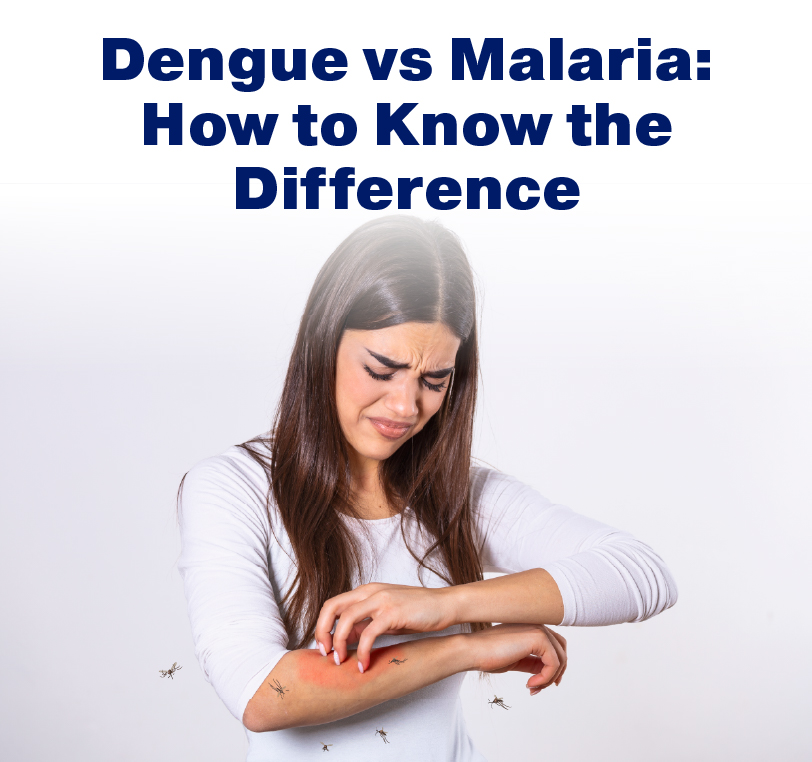Dengue vs Malaria How to Know the Difference
Dengue vs Malaria: How to Know the Difference
Fever is common in tropical regions, but when it strikes with body pain, chills, or rashes, two names immediately surface: dengue and malaria. These illnesses often look alike at first, yet the difference between them is critical for the right treatment and recovery.
Virus or Parasite: The Real Cause Behind Each Illness
Dengue is caused by a virus spread by the Aedes aegypti mosquito, a day-biter that thrives in urban areas with stagnant water. Malaria, on the other hand, comes from Plasmodium parasites, transmitted by Anopheles mosquitoes, which usually bite at night and are found more in rural or semi-urban areas.
How Dengue Symptoms Differ from Malaria
In dengue, symptoms appear three to fourteen days after infection. The fever is sudden and high, often paired with severe headaches (especially behind the eyes), muscle and joint pain, rash, nausea, or mild bleeding from the gums or nose.
Malaria typically shows symptoms ten to fifteen days after the mosquito bite. Its hallmark is cyclical fever: chills, sweating, and a brief break before the pattern repeats. Other signs include headache, fatigue, and in advanced cases, anaemia or jaundice.
Dengue feels like bone-deep pain with rash, while malaria is marked by rhythmic fever waves.
The Tests Doctors Use to Tell Them Apart
Both illnesses share overlapping symptoms such as fever, fatigue, and body pain. Pathology tests provide clarity and ensure patients receive the right care without delay.
For dengue, doctors use the NS1 antigen test for early detection, antibody tests (IgM and IgG) to identify the infection stage, and PCR for confirmation.
Malaria is best diagnosed through a blood smear, where the parasite is identified under a microscope. Rapid diagnostic tests (RDTs) are also common, while PCR is used in specialised labs.
Warning signs you should not ignore
Any fever in a mosquito-prone area deserves medical attention. Warning signs that require immediate hospital care include persistent vomiting, severe abdominal pain, unusual bleeding, fainting, or yellowing of the eyes and skin. Quick action here supports safer recovery.
Stop Mosquitoes Before They Bite
Both dengue and malaria are best tackled through prevention. Simple habits like using mosquito repellents, sleeping under nets, wearing protective clothing, and removing stagnant water can cut risk. Community-wide prevention strengthens individual protection.
What You Should Remember
Dengue and malaria may appear similar at first, but their cause, symptoms, and treatment differ. The surest way to know is through proper testing. When fever strikes, clarity is your strongest defence: get tested, get treated, and recover safely.
